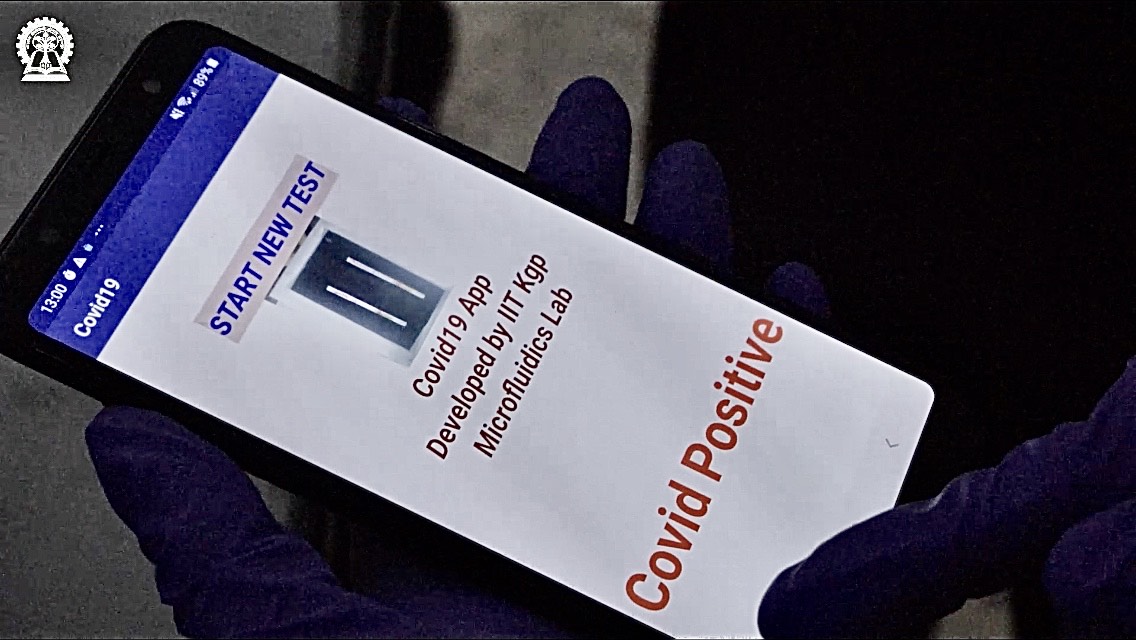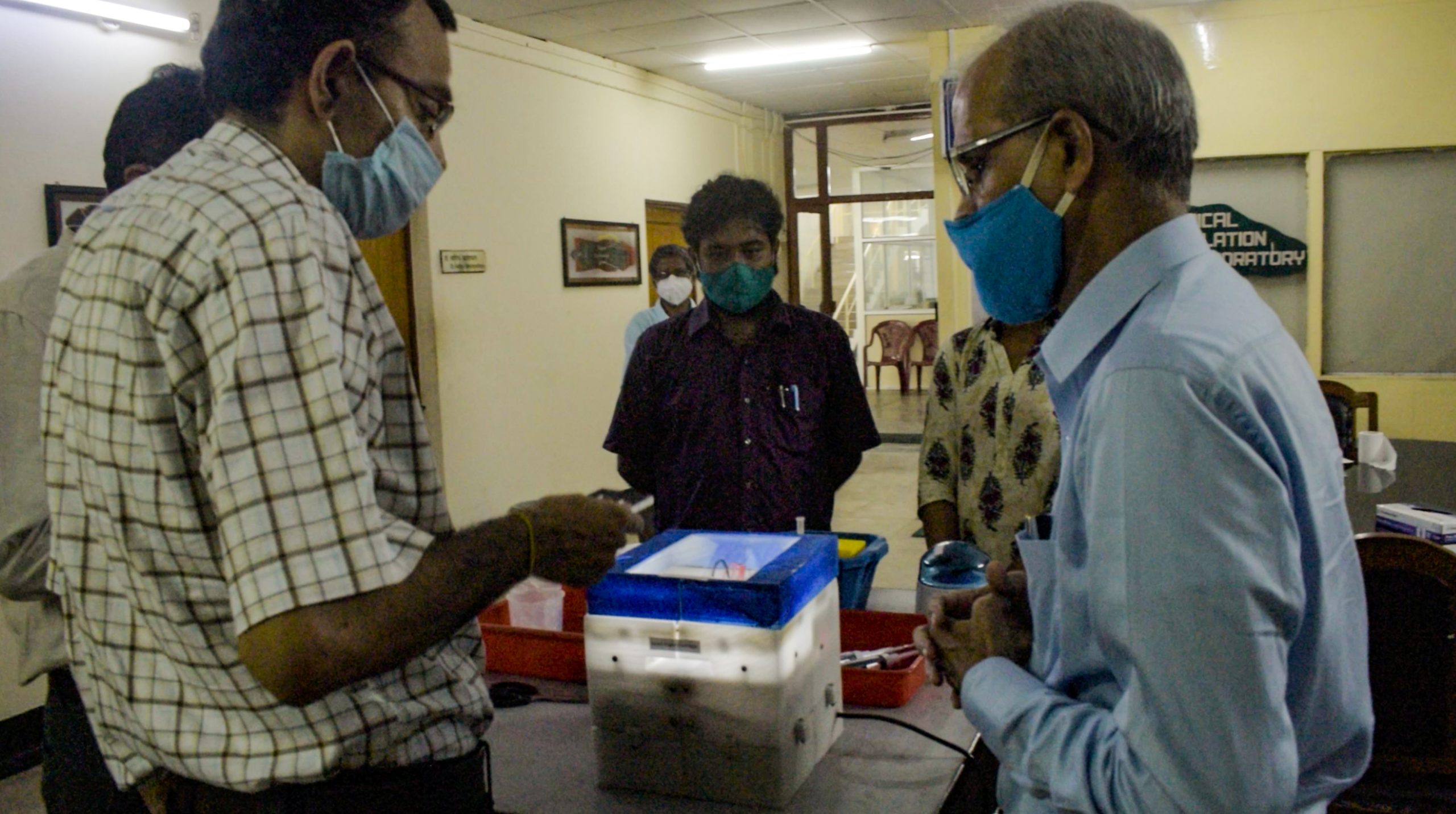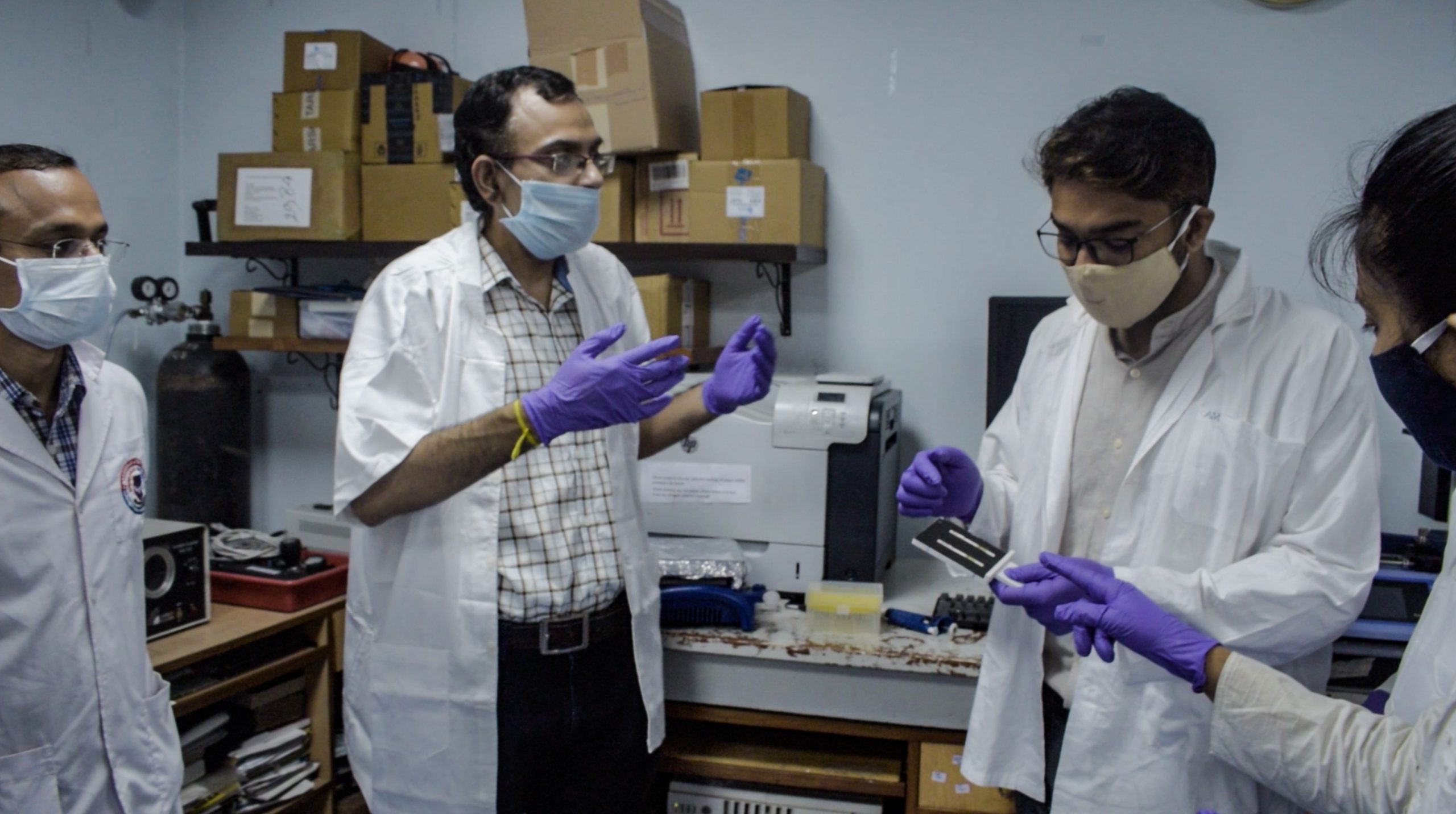Best Books to Read in 2023
Best Books to Read in 2023 Are you a bookworm or a bibliophile, if yes, then this is the ...
IIT Kharagpur researchers have brought out a novel portable rapid diagnostic device to detect COVID-19 infection.
This first-of-its-kind device brought out by IIT Kharagpur researchers will bring the testing for COVID-19 out from the walls of expensive laboratories and RT-PCR machines and enable testing at affordable costs for the under-served community across the world.
 This entire test can be conducted in an ultra-low-cost portable enclosure as an alternative to specialized laboratory equipment.
This entire test can be conducted in an ultra-low-cost portable enclosure as an alternative to specialized laboratory equipment.
The same portable unit can be used for a large number of tests, on mere replacement of the paper cartridge after each test.
The device has been proven to produce no false result with remarkable accuracy and sensitivity compatible to standard RT-PCR tests.
The IIT Kharagpur researchers who came up with this technology are Professor Suman Chakraborty from the Mechanical Engineering Department, IIT Kharagpur and Dr. Arindam Mondal from the School of Bio Science, IIT Kharagpur.
They came up with the concept of a portable non-invasive rapid detection test for COVID-19 thus taking the testing mechanism to a whole new level.
The technology essentially deploys a disposable simple paper-strip for chemical analysis and visualization of results.
This test has an unprecedented low cost of less than ₹ 400/- per test, taking all components of expenses and business model into account.
Considering the impending outbreak of COVID-19 infection at progressively more geographical locations with the anticipated increment in number of affected personnel at a dramatic rate, there is an emergent need to run large numbers of reliable diagnostic tests at affordable cost and minimal infrastructural support, for monitoring the early stages of progression of the disease when many of the infected persons do not exhibit discernible symptoms of infection.
However, the testing technologies currently under use are highly expensive, despite the innovations in low-cost testing kits as the actual testing machinery cost remains high.
Further testing mechanism has logistical issues due to the infrastructural requirement of the testing centres.
IIT Kharagpur researchers contemplating on the challenge, realized the alternative cannot be new innovations for the existing detection systems such as testing kits and PCR machines but a disruptive approach leading to a new technology and testing process being innovated without sacrificing the scientific rigor and medically acceptable high standards of the test results.
Using the technology brought out by IIT Kharagpur researchers, entire test can be conducted in an ultra-low-cost portable enclosure as an alternative to specialized laboratory equipment.
The same portable unit can be used for a large number of tests, on mere replacement of the paper cartridge after each test.
 The new device has been designed to be usable at locations with extremely poor resources in an uncontrolled environment, catering the needs of the underserved population.
The new device has been designed to be usable at locations with extremely poor resources in an uncontrolled environment, catering the needs of the underserved population.
Moreover, it can be operated by minimally trained personnel, precluding the needs for skilled technicians.
The IIT Kharagpur researchers have successfully validated the detection procedure, taking time of approximately 60 minutes to run each test.
This obviates the need of an expensive PCR machine, by means of a set of innovations such as a portable automated pre-programmable temperature control unit for viral testing, introduction of a special detection unit based on genomic analysis, and a customized smartphone application for dissemination of test results without requiring manual interpretation.
While the Institute can produce the testing kit up to a certain scale, patent licensing will facilitate commercialization opportunities for medical technology companies.
Speaking more about the work Professor Suman Chakraborty who is one of the ITT Kharagpur researchers said that in assessing the utility of a specific method of disease detection, there is a common failure to recognize that the cost of the test kit may not turn out to be the most critical factor from the viewpoint of affordable diagnosis, unlike what is being commonly portrayed.
Rather, the greater challenge is complete elimination of the need for any specialized infrastructure and ensuring the possibility of conducting tests at large scale at low cost without compromised accuracy.
In that light, the RT-PCR based tests suffer from a compelling constraint of requiring an elaborate laboratory-infrastructure and support system including the operational and maintenance cost, to perform the test.
 The alternative existing approaches to these tests, on the other hand, are either invasive (blood tests) and non-indicative of early stage of development of the infection, or dependent on reagents that are extremely unstable and cannot be implemented in resource-limited settings, he said.
The alternative existing approaches to these tests, on the other hand, are either invasive (blood tests) and non-indicative of early stage of development of the infection, or dependent on reagents that are extremely unstable and cannot be implemented in resource-limited settings, he said.
The Equipment developed by IIT Kharagpur researchers will cost about ₹ 2,000 if a pilot facility is used.
Use of a large-scale commercial facility will further reduce with increase in the production scale. This compares very favourably with the RT PCR machine costing ₹ 15 lakh.
Another among the IIT Kharagpur researchers Dr. Arindam Mondal said the equipment developed by IIT Kharagpur researchers will cost about ₹ 2,000 if a pilot facility is used.
This project of IIT Kharagur researchers received financial support from their institute in late April as director of IIT Kharagpur Professor V.K. Tewari decided to set up a fund to support COVID-19 related research and product development.
Director V.K. Tewari speaking about the innovation of the IIT Kharagpur researchers said this unique innovation is aligned with the Institutional vision to develop high-end healthcare technologies that can be afforded by the ailing common people all around the globe at virtually no cost, and is likely to make significant breakthrough in global viral pandemic management.
Ministry of Human Resources Development, Government of India has also been reaching out to all technical institutions regarding ongoing research work to help address India’s increasing need to augment testing facilities.
The results from this new technology have been strictly validated by following all established laboratory controls against the benchmarked results obtained from RT-PCR machine, using synthetic viral RNA.
The synthetic RNA is exactly the same replicate of the viral RNA extracted from infected patients, as per accepted scientific benchmarking procedure, and is used for validating laboratory tests to avoid undue contamination and danger due to spreading of infection while handling sensitive body-fluid samples.
IIT Kharagpur is ready for commercialization of the product brought out by IIT Kharagpur researchers. Any corporate or start-up can approach the Institute for technology licensing and commercial scale of production.
The Institute is open to tie-ups, including a mode where the government intervenes with regards to meeting our low-cost healthcare objective for the under-served community as a policy measure to protect the interest of public health amidst the pandemic situation, instead of merely developing a strong profit-oriented model.
S Vishnu Sharmaa now works with collegechalo.com in the news team. His work involves writing articles related to the education... (Full bio)

Best Books to Read in 2023 Are you a bookworm or a bibliophile, if yes, then this is the ...

In the exhilarating journey of 10 Proven Memorize Techniques for Students learning, memory is your trusty companion. Whether ...

Top 20 toughest exams in world is about exams in the world that required very hard work to ...

Top 20 toughest exams in India - Exams are the perhaps most toughest moments for any student. A ...

Top 20 Colleges of DU Getting admissions to the top 20 colleges of DU is a dream for every ...

Top 20 NITs of India - Amongst the 31 NITs in India, today, we are talking ...

Here are the Top 12 Artificial Intelligence in Mumbai. Artificial intelligence (AI) refers to the simulation of human ...

As you stand on the Best Science Courses after 12th academic journey, the realm of science beckons, offering ...
Millions of students have entrusted CollegeChalo to facilitate their seamless and smooth admission process to their dream colleges and universities. With CollegeChalo, you can gain a competitive edge by easily accessing exam and course details to stay ahead of the admission journey. What are you waiting for?
Search your dream college